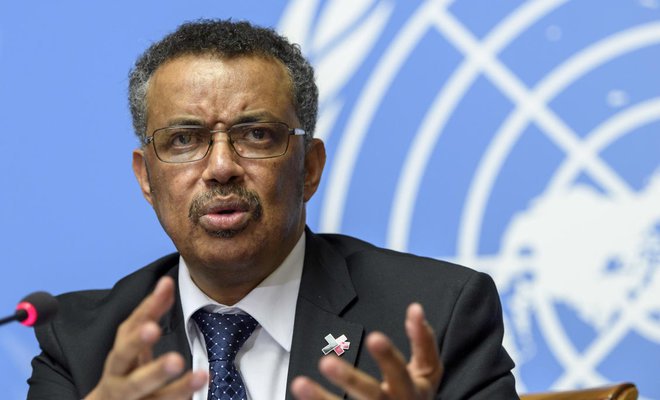Director General of the World Health Organization (WHO) Dr. Tedros Adhanom Ghebreyesus expressed his thanks and appreciation to the Custodian of the Two Holy Mosques King Salman bin Abdulaziz Al Saud, for the Kingdom’s support for the Organization and the United Nations Children’s Fund (UNICEF), citing the Saudi donation of $ 66.7 million to the two organization to combat the cholera epidemic in Yemen.
This came during a meeting between Ghebreyesus and Saudi Minister of State and Cabinet member Ibrahim Al-Assaf on the sidelines of the G-20 Summit in Hamburg, Germany.
Earlier, the WHO thanked Saudi Crown Prince Mohammed bin Salman, deputy prime minister and minister of defense, for his donation to stop the spread of cholera in Yemen.
In response to an urgent call for funding, the King Salman Center for Relief and Humanitarian Aid (KSRelief) announced the donation to UNICEF, the WHO and their partners. Activities will center on a combination of water, sanitation and health care activities, which officials say will help save the lives of thousands of Yemenis at risk.
Earlier, UNICEF Director Anthony Lake said in a statement: “We are now facing the worst cholera outbreak in the world, with an average of 5,000 new cases every day.” The agencies say that more than 1,300 people have died — a quarter of them children — and the death toll is expected to rise.
Cholera is a highly contagious bacterial infection spread through contaminated food or water. Although the disease is easily treatable, doing so in conflict-torn Yemen has proved particularly difficult.
UN reports indicate that almost 19 million people — more than two-thirds of Yemen’s total population — are in need of humanitarian assistance, and that 14.5 million people lack access to clean water and sanitation.
